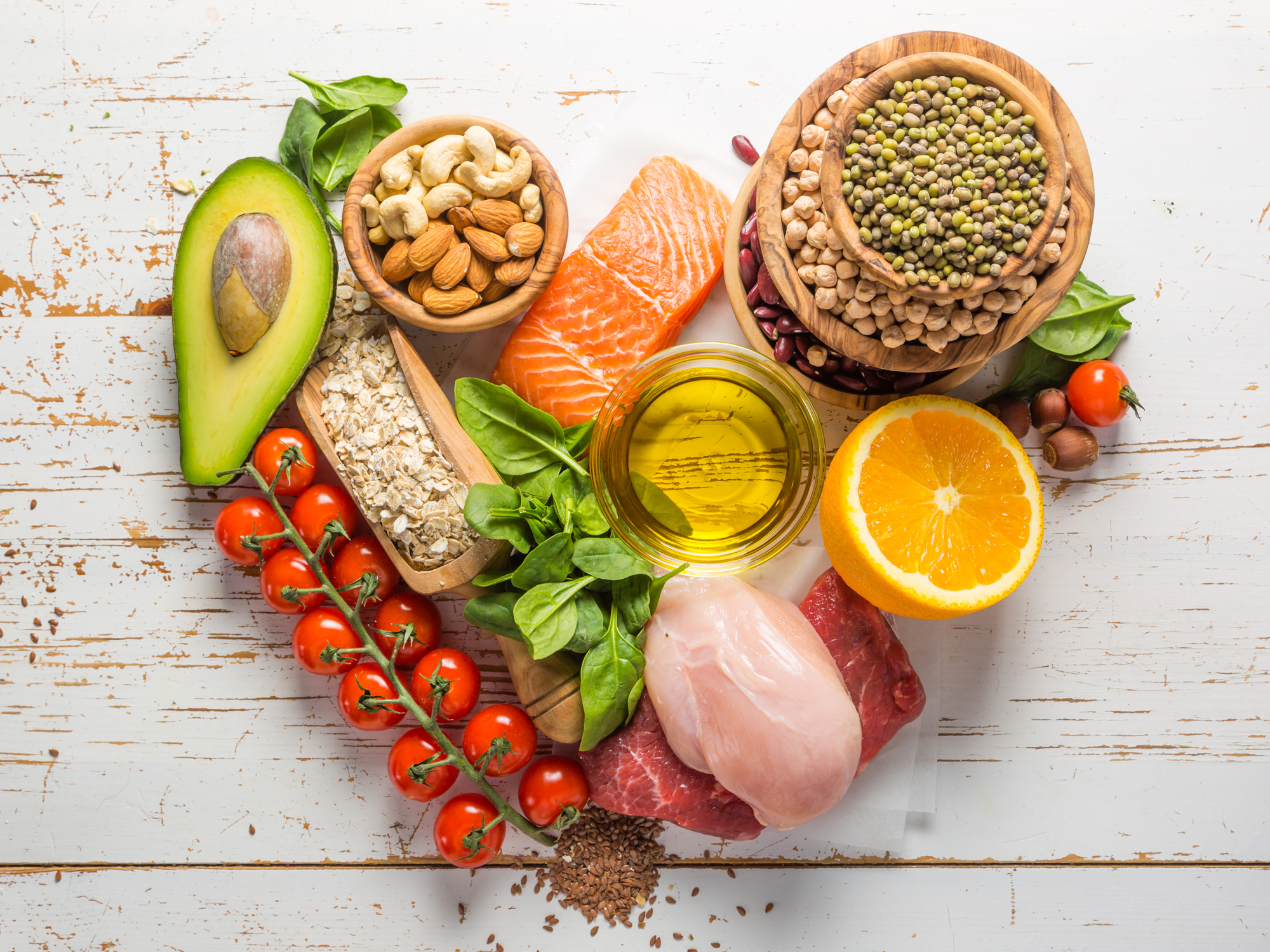Get Easy Health Digest™ in your inbox and don’t miss a thing when you subscribe today. Plus, get the free bonus report, Mother Nature’s Tips, Tricks and Remedies for Cholesterol, Blood Pressure & Blood Sugar as my way of saying welcome to the community!
What works better than low-fat for a healthy heart?

For a long time, a low-fat diet was the go-to diet plan for people looking to prevent heart disease…
All you had to do was switch to skim milk, ditch the butter for margarine and search for the words “low-fat” on every package you purchased, and you’d be well on your way to a healthy heart, right?
Wrong. Not only does a low-fat diet increase your risk of early death, but it turns out it’s far from the best choice for keeping your heart healthy too.
But if a low-fat diet doesn’t keep your heart healthy, then what diet does?
Well, let’s just say, the answer to that question will please Paleo, Atkins and ketogenic eaters everywhere…
The low-carb heart cure
Researchers from the University of the Negev and Soroka University Medical Centre in Israel found that eating a low-carb Mediterranean diet was more effective than eating a low-fat Mediterranean diet when it comes to reducing hidden fat deposits around the heart.
In case you didn’t know that you have to worry about “heart fat” on top of all the other types of fat you worry about, you do. These fat deposits are known as pericardial fat, and they put you at risk for heart disease.
Low-carb eating helped people lose twice as much of this dangerous heart fat as low-fat eating did. Researchers also found that cutting carbs increased levels of HDL (good) cholesterol and trimmed fat around the waistline better than cutting fat.
So clearly low-carb trumps low-fat in the heart health department — it decreases pericardial fat, boosts good cholesterol and does away with that dangerous belly fat. What more could you ask for?
Oh yeah… it helps you lose weight too. People who ate low-carb Mediterranean diets slimmed down all over… not just in their waist and their heart.
Should you go low-carb?
Based on this study, you may be considering a low-carb Mediterranean diet for yourself… and you should! It’s one of the healthiest diet philosophies around.
But how do you go low-carb and Mediterranean simultaneously? Well, truth be told, it’s pretty easy. Just follow these simple guidelines:
- Steer clear of added sugar, especially high fructose corn syrup found in processed foods.
- Stay away from refined carbs like white bread, pasta and white rice.
- Get your carbs from whole grains and beans
- Eat loads of colorful vegetables, especially green leafy ones to load up on vitamin K2. You might want to consider a supplement if you tend to eat fewer veggies.
- Stick to one to two servings of low-sugar fruit per day, like berries, apples or pears.
- Pack in the protein. Quality is key when it comes to protein, though. Avoid processed meats, and choose fresh local, organic and/or grass-fed meats instead.
- Fill up on healthy fats. That includes full-fat dairy products, nuts, avocados and healthy oils like olive oil and coconut oil.
Editor’s note: There are perfectly safe and natural ways to decrease your risk of blood clots including the 25-cent vitamin, the nutrient that acts as a natural blood thinner and the powerful herb that helps clear plaque. To discover these and other secrets of long-lived hearts, click here for Hushed Up Natural Heart Cures and Common Misconceptions of Popular Heart Treatments!
Sources:
- A Mediterranean LOW-CARB diet is better for your heart and waistline than a LOW-FAT plan, study shows — The Daily Mail. Retrieved September 18, 2017.
- Tasban, et al. “Dynamics of intrapericardial and extrapericardial fat tissues during long-term, dietary-induced, moderate weight loss.” — American Journal of Clinical Nutrition, 2017.
- Fat Around The Heart May Increase Risk Of Heart Attacks — ScienceDaily. Retrieved September 18, 2017.
- 7 Principles for Low-Carb Mediterranean-Style Eating — Tips on Life & Love from Simon & Schuster. Retrieved September 18, 2017.












